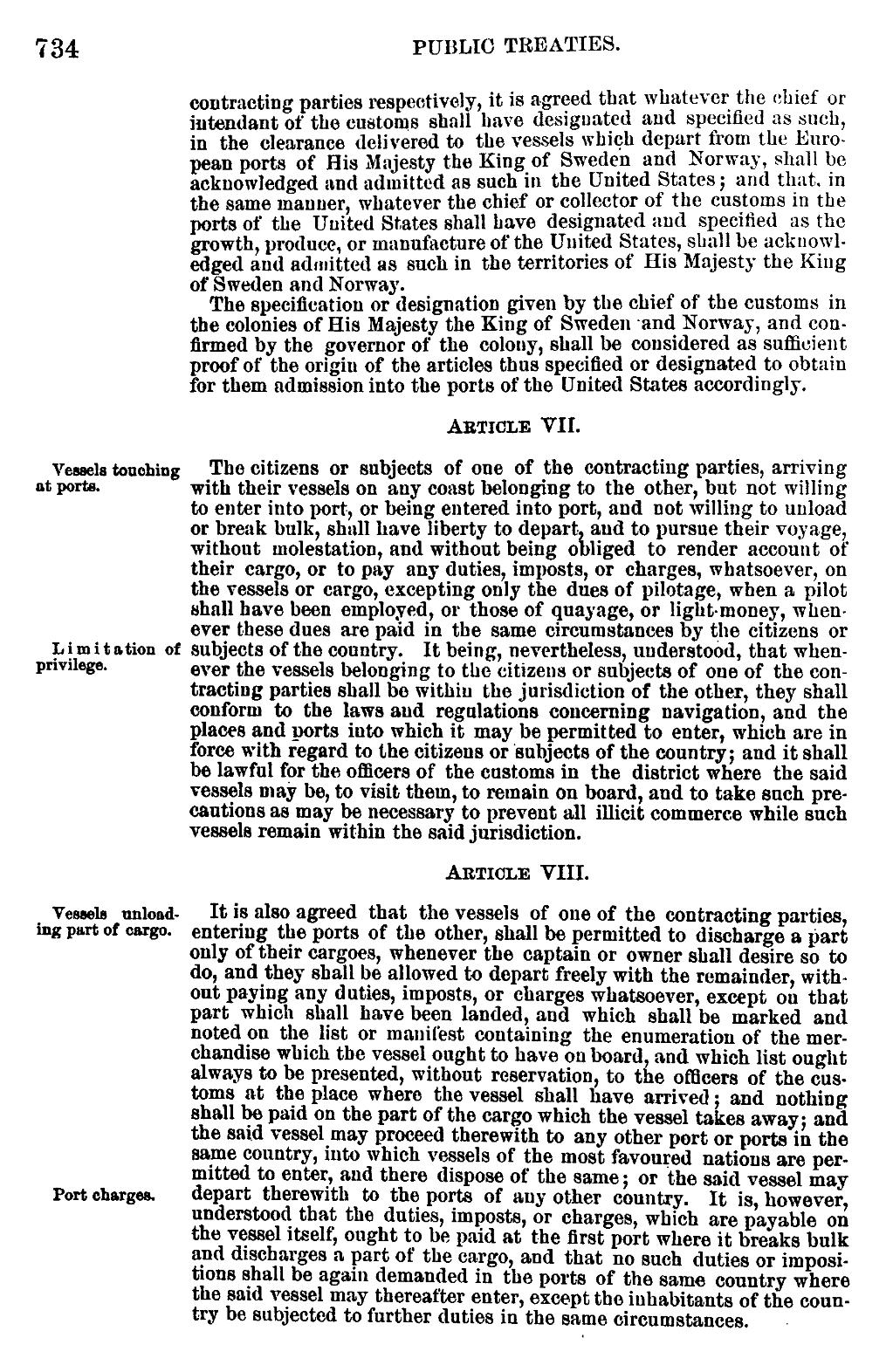7 34, PUBLIC TREATIES. contracting parties respectively, it is agreed that whatever the chief or intendant of the customs shall have designated and specified as such, in the clearance delivered to the vessels which depart from the huropean ports of His Majesty the King_of Sweden and Norway, shall be acknowledged and admitted as such in the United States; and that. in the same manner, whatever the chief or collector of the customs in the ports of the United States shall have designated and specined as the growth, produce, or manufacture of the United States, shall be acknowledged and admitted as such in the territories of His Majesty the King of Sweden and Norway. _ _ _ The specification or designation given by the chief of the customs in the colonies of His Majesty the King of Sweden and Norway, and confirmed by the governor of the colony, shall be considered as sufficient proof of the origin of the articles thus specified or designated to obtain for them admission into the ports of the United States accordingly. Anrrcnn VII. vmeis magma; The citizens or subjects of one of the contracting parties, arriving M 1><>rt¤· with their vessels on any coast belonging to the other, but not willing to enter into port, or being entered into port, and not wilhngto unload or break bulk, shall have liberty to depart and to pursue their voyage, without molestation, and without being obliged to render account of their cargo, or to pay any duties, imposts, or charges, whatsoever, on the vessels or cargo, excepting only the dues of pilotage, when a pilot shall have been employed, or those of qnayage, or light-money, whenever these dues are paid in the same circumstances by the citizens or Limitation of subjects of the country. It being, nevertheless, understood, that when- P¤Vi1°8°· ever the vessels belonging to the citizens or subjects of one of the contracting parties shall be within the jurisdiction of the other, they shall conform to the laws and regulations concerning navigation, and the places and ports into which it may be permitted to enter, which are in force with regard to the citizens or subjects of the country; and it shall be lawful for the officers of the customs in the district where the said vessels may be, to visit them, to remain on board, and to take such precautions as may be necessary to prevent all illicit commerce while such vessels remain within the said jurisdiction. Ancrrcms VIII. vessels unload- It is also agreed that the vessels of one of the contracting parties, ing part of ¤¤rg¤- entering the ports of the other, shall be permitted to discharge a part only of their cargoes, whenever the captain or owner shall desire so to do, and they shall be allowed to depart freely with the remainder, without paying any duties, imposts, or charges whatsoever, except on that part which shall have been landed, and which shall be marked and noted on the list or manilest containing the enumeration of the merchandise which the vessel ought to have on board, and which list ought always to be presented, without reservation, to the officers of the customs at the place where the vessel shall have arrived; and nothing shall be paid on the part of the cargo which the vessel takes away; and the said vessel may proceed therewith to any other port or ports in the same country, into which vessels of the most favoured nations are permitted to enter, and there dispose of the same; or the said vessel may Port charges. depart therewith to the ports of any other country. It is, however, understood that the duties, imposts, or charges, which are payable on the vessel itself, ought to be paid at the first port where it breaks bulk and discharges a part of the cargo, and that no such duties or impositions shall be again demanded in the ports of the same country where the said vessel may thereafter enter, except the inhabitants of the country be subjected to further duties in the same circumstances. -
